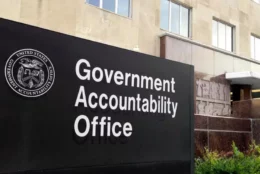Management
-
Experts say GSA will keep shrinking the federal real estate portfolio, regardless of the next administration. But the methods will vary, depending on who wins.
July 26, 2024 -
The IRS recently announced it had collected $1 billion in overdue tax revenue, after launching a crackdown on millionaires not paying what they owe.
July 26, 2024 -
This is a massive step in educating the federal workforce about whistleblower rights and protections.
July 26, 2024 -
No matter the election’s outcome, the “daunting” task of presidential transition planning is already going too slow, the Partnership for Public Service said.
July 25, 2024 -
The Government Accountability Office recently checked back in on how VA is training its claim processors.
July 25, 2024 -
The IT challenges come as multiple agencies have been forced to close their offices for hours or even a full day due to a shortage of federal security guards.
July 25, 2024 -
This guest is 35 years old and joined federal service only three years ago. She's having a big impact in a lot of ways having to do with health care delivery.
July 24, 2024 -
The deadline for agencies to submit digitized records for archiving and preservation by the National Archives and Records Administration came and went.
July 24, 2024 -
The Government Accountability Office has found the Marshals Service needs to improve its oversight of incarceration facilities.
July 24, 2024 -
In today's Federal Newscast, a group of federal employees continues to push for expanded fertility benefits through the government's health insurance program.
July 24, 2024 -
Opting for career SES officials or appointees who don’t need Senate confirmation may be the most effective way to minimize persistent leadership vacancies.
July 23, 2024 -
Kimberly Cheatle, who had served as Secret Service director since August 2022, faced growing calls to resign.
July 23, 2024 -
In today's Federal Newscast, federal contractors have new advice for using artificial intelligence in the hiring process.
July 23, 2024 -
In the wake of the Supreme Court decision, OIRA is also touting its efforts to reduce needlessly complicated paperwork and other burdens on the public.
July 22, 2024 -
The Secret Service's director says the roof where a shooter opened fire at Donald Trump's rally was identified as a potential vulnerability before the event.
July 22, 2024















